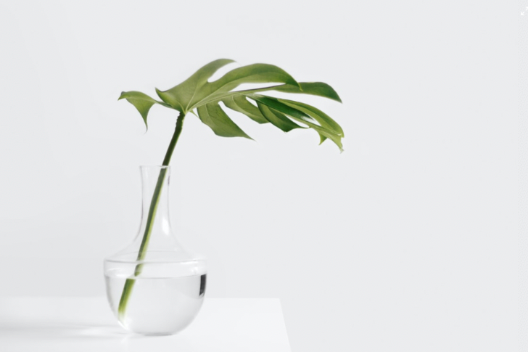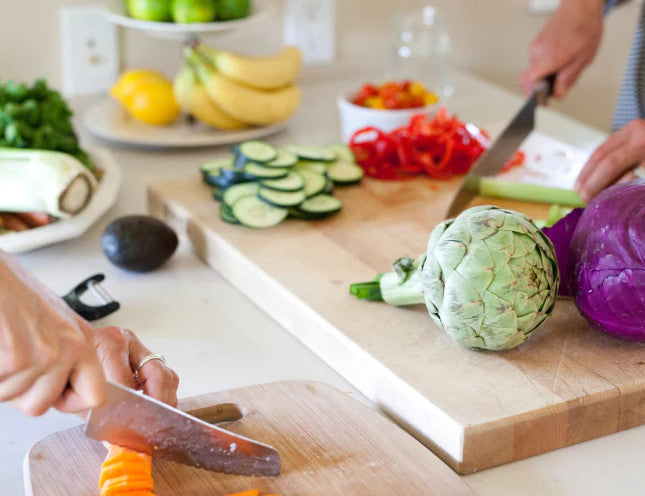Calm Home, Calm Mind: Part 2

CALM HOME, CALM MIND – TOP TIPS FOR LIVING WITH LESS STRESS
We’re back, with more action steps for cultivating calm at home. Today’s topics are plants , family time and few simple areas of focus for food and drink. Stay with us… this small steps can be more impactful than you’d think…
GROW, BABY, GROW
Having plants in your home can have a surprisingly immediate and positive impact on your stress levels. Not only are they visually appealing, but the connection with nature is also subconsciously relaxing, and they improve your air quality just by being in your home.
In addition to the positive benefits of having plants physically present, many plants help you relax by ingesting them or smelling them. Peppermint, chamomile, lavender, and jasmine are all plants whose properties are beneficial both as teas and diffused into the air. If you’re someone who has a diffuser that you forget to use, plug it into a switch with an automatic timer, so it comes on just before you get home from work.
Another great way to incorporate the outdoors into your daily spaces is with a desktop-size zen garden. You can buy a premade zen garden or put your own together with plants you most enjoy. With many options available, the common elements of zen gardens are that they are compact and intended to provide a means of calming your thoughts. Like a mantra in meditation, the act of tending the tiny garden gives your mind a pleasant means of focusing your immediate thoughts, allowing your brain space to relax in the background.
Aside from plants, another natural element that is incredibly calming is running water. Bring this serene feature into your home by adding a tiered tabletop fountain, a lighted waterfall table, or even a water passageway or indoor pond. If this is too much a leap, try playing some spa or meditation music with water sounds. It can be incredibly grounding and relaxing.
ENCOURAGING KIDS TO RELAX & HOW TO RELAX TOGETHER AS A FAMILY
if you have kids at home, you know how hectic things can get… school supplies, clothes, electronics, schedules, all of the stuff! These simple practices are great for families or as simple reminders for all of us!
-
Practice slow breathing techniques – Just like us, kids benefit from mindful breathing, and we can teach them to be aware of their breathing by doing breathing exercises with them.
-
Supervise content consumption in children – It can be easy to lose track of kids’ screen time but knowing how much is healthy for their age and being disciplined about enforcing limits is key to helping them relax at home. Keep an eye on the type of content that seems to be connected to unrest, whether that shows up in behavior, sleep patterns, etc. If limiting screen time is a trouble spot, try to find a non-screen-related activity that gets them excited and use that as a way of ending screen time positively.
-
Importance of creating a routine – Routines are as crucial for kids as they are for us. Having a routine makes their minds feel more secure, and they focus less on day-to-day tasks as new events require energy, which frees up mental space to put more effort into bigger-picture ideas and growth. It might come more easily for some than others, but being disciplined about a routine is a key way to help your child reduce stress. The routine should involve positive things that they love as well as practicalities, that way you’re teaching them that it’s equally important to make time to do things you love as it is the things you need to do.
-
Playing Outdoors – Playing outdoors is a key way kids learn about the world and their capabilities and limits. It lets them be free of the constraints of the indoors and channel effort they might be putting elsewhere into being silly and free. Freeplay is a concept that allows our kids to develop and fine-tune motor skills, learn body awareness, and build strength. Finding time to let them play in the backyard will improve their lives quality. Introducing them regularly to new outdoor spaces will help them be less stressed in the home. This is so important for kids and adults alike. Get outside and play, today!
EAT, DRINK, AND BE CALM
You know this matters to us! What we put in our bodies is essential, just like what we surround our bodies with. Eating well is a huge piece of the puzzle when it comes to mindfulness and reducing stress.
-
Brain Foods – Certain foods help improve our mental processes by nourishing our bodies with compounds our brains need to function their best. Some common foods in this category are (sustainably sourced) salmon, tuna, eggs, nuts, berries, and dark leafy greens.
-
Relaxing Teas 101 – Drinking tea is a great way to destress at home. Certain teas can have benefits like improving digestion (mint teas), overall calming effects (chamomile), and energizing properties (matcha). In addition to these, the ritual of making tea can be a positive element to add to your self-care routine. Tempted by tea? If you are in the Roaring Fork Valley check out this upcoming Tea Ceremony hosted by one of our good clean chefs, Madilyn Sullivan, for a deeply embodying, transformationally sensual and meditative experience.
-
Foods to Relax – Some foods can even help you unwind by increasing levels of certain hormones or compounds that help with relaxation. If you’re looking to zen out with a snack, try these: organic dark chocolate, (sustainably sourced) fish, avocado, whole grain bread, nuts, or citrus fruit.
-
Foods to Avoid – Just like some food can have positive benefits, and other foods are detrimental to us. When you focus on bringing down your stress levels, avoid foods containing processed sugar and carbohydrates, alcohol, and caffeine. We like to quote Mark Hyman on this on: If it comes from a plant, eat it. If it’s made in a plant, don’t!


